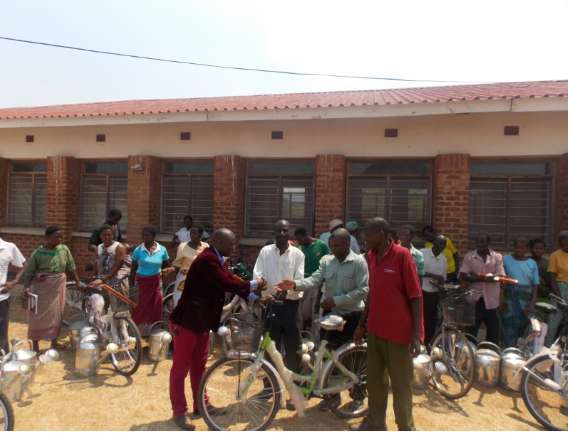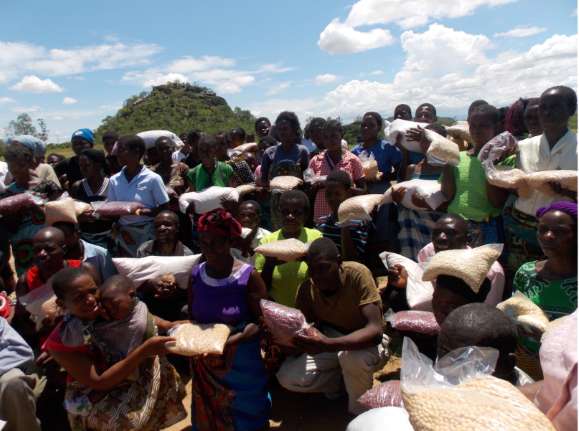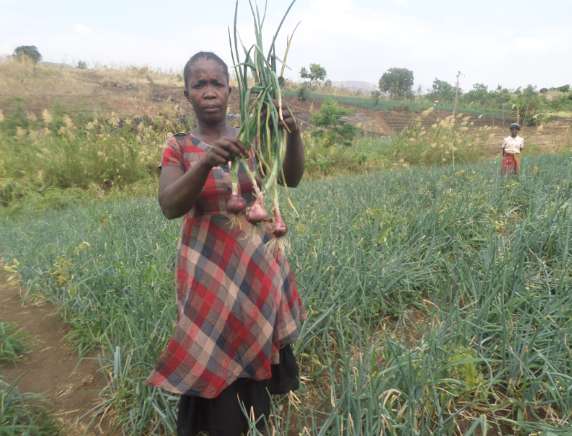In this interview with Jones Mwalwanda, Executive Director of Foundation for Community and Livelihood Development (FOCOLD), we were taken through the community building initiatives of the organization as they work to change lives in Malawi’s rural communities.
Foundation for Community Livelihood and Development (FOCOLD) is a non-partisan nonprofit which is community based, and youth-led. Established in the year 2012, FOCOLD is a member of the NGO Board and Council for Non-Government Organization in Malawi. The organization’s aim is to improve the well-being of the vulnerable through the provision of community transformation services with a specific target on youth, children and women and those infected and affected with HIV/AIDS. The secretariat is headed by the Executive Director – Jones Mwalwanda, who is supported by technical and program staff responsible for the implementation of program activities while the Board gives direction and overall governance to the foundation.

FOCOLD was established primarily to
- Support the improvement of livelihoods and capacities of poor and marginalized households to facilitate provision of quality basic education for every child, especially orphans and vulnerable children.
- Strengthen adequate access to care, support, protection, development and impact mitigation for orphans, vulnerable children and people living with HIV/AIDS.
- Provide locals with an environment where they can realize their potential; improve access to safe water supply and sanitation facilities, and increase community capacity of vulnerable girls and young women of Malawi through provision of knowledge and skills around SRHR and small business.
FOCOLD is an institution that is striving to facilitate community systems strengthening by empowering community structures to champion change focusing on underprivileged children, youth and women through a strategic approach called “theory of change.” This approach starts with the end in mind.
The nonprofit is promoting access to education for needy children and youth at both primary and secondary level, improving food production through new modern farming practices and provision of farm inputs. It is improving income levels of the needy households, in particular, women, to ensure that they have buying power and improve their livelihood at household level.

The organization’s initiatives elevate the lives of those in the communities they serve:
Economic empowerment/microfinance
FOCOLD supports needy families, in particular female headed households with business and entrepreneurial skills, and knowledge through training. They establish economic support groups through village savings and loans for women and youth by providing loans and encouraging savings among beneficiaries. This has helped many families to improve their income levels and be able to access basic needs at household level.
Education
FOCOLD promotes access to education for needy children and youth focusing on the following outcomes, transition, persistence and pass rate. The organization is working in the South West Education Division (SWED) under the National Reading Program where they are promoting reading skills for children through community mobilization, capacity building and establishment of reading centers. They also work with secondary schools to provide stationary, school shoes and uniforms. The initiative aimed at providing support to improve specific education outcomes for Girls’ Education.
Health
FOCOLD promotes access to Health care services for needy children, youth and women in rural areas. They work closely with health centers and hospitals to ensure that communities are able to access health services in particular HIV/AIDS services and Sexual reproductive health services among others. The organization does social audits through scorecards as one way of assessing the health services. This action helps the hospitals to improve on their service delivery.

Agriculture, nutrition and food security
FOCOLD provides knowledge and skills to vulnerable households on modern and good farming practices through training. They offer training in crop production and management, livestock management, compost manure making, small scale irrigation, food preparation and storage.
Jones was quick to mention that the operations of the organization were affected by the Covid-19 pandemic. Some of their funders cut down on their allocation which in turn forced the organization to retrench some staff. This meant they had to scale down on their activities in the local communities. In concluding this feature, we would like to invite you to read Jones’s thoughts on what specific changes he wants to see in the Africa philanthropy landscape here.
Our special thanks to the Foundation for Community and Livelihood Development for their responses that formed this feature. Discover more on FOCOLD’s activities through their website.
